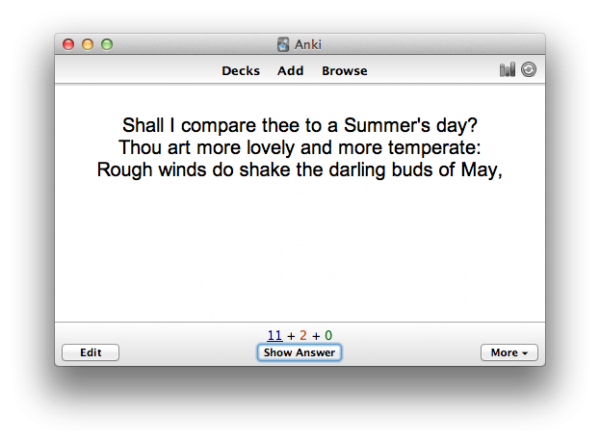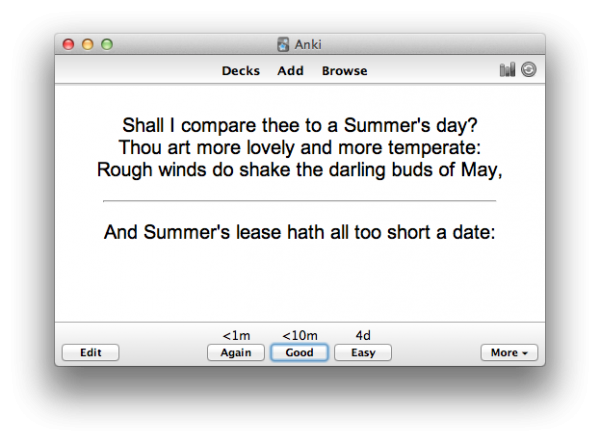Richard and I have been playing with flash cards as a way of learning things.
The great thing about an electronic implementation of the old ‘question on one side, answer on the other’ idea, is that it can make smart decisions about when and how frequently you should be presented with a particular card. Things you find easy to remember need only occasional repetition, while those which are new or more challenging need more regular viewing until they stick in your memory. When you see the answer, you just say whether or not you got it right, and how hard you found it.
Richard wrote a little while back about using this model to learn a reading he had been asked to give at a wedding. I’ve always liked learning poetry or bits of Shakespeare, but often find that large chunks will flow easily while there are one or two lines I always forget. Could this be the solution?
One of the popular flashcard systems out there is an Open Source one called Anki, created by Damien Elmes. It has Windows, Mac, Linux and Web clients, plus Android and iOS (though these don’t yet work on the latest version). And there are various ways you can get decks of cards in and out. The user interfaces are rather quirky, I find, and even the web sites can be confusing to navigate, but the underlying system works fine.
It’s easy to find plain-text versions online of most things I want to learn, so I wrote a little script called poem2anki which will take a text file containing lines of poetry (or prose!) and convert it into a file suitable for importing into Anki.
A question:

and the answer:

It will create these for all the lines in the poem, but you’ll quickly find you’re only tested on the ones you find difficult to answer.
You can find poem2anki here if wanted.
Recent Comments